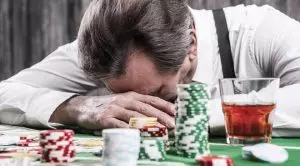 The boss of National Health Service (NHS) England has raised a red flag regarding the dangers of quick and easy one-button bets after it was reported that a record number of local people sought help to deal with their problem gambling behaviour.
The boss of National Health Service (NHS) England has raised a red flag regarding the dangers of quick and easy one-button bets after it was reported that a record number of local people sought help to deal with their problem gambling behaviour.
As she revealed that the NHS is set to boost its support for gambling addicts due to a constantly increasing demand, Amanda Pritchard also shared her concerns that both children and adults in England have been bombarded with gambling advertising materials on all possible channels. According to official reports provided by the National Health Service England, there was a record number of 1,389 patients who were referred for professional help due to gambling addiction in 2022. In comparison, 1,013 problem gamblers and 775 problem gamblers were referred for treatment in 2021 and 2022, respectively.
In an attempt to face the constantly rising need for professional help and treatment of such behavioural problems, Ms Pritchard revealed that the NHS is launching seven more gambling-related treatment clinics to support people struggling with gambling addiction.
The announcement was made only a couple of days after a coroner criticised a company for doing literally nothing to prevent an avid gambler who showed clear signs of gambling addiction, which eventually resulted in his suicide. As Casino Guardian reported, coroner Ivan Cartwright noted that the betting operator could have done more to help Luke Ashton who had lost thousands of pounds gambling on Betfair’s exchange platform.
Seven New NHS Clinics to Start Operation across the Country
 As confirmed by NHS England’s boss, the new clinics will be established in Liverpool, Bristol, Blackpool, Derby, Sheffield, Thurrock, and Milton Keynes. They will operate along with the gambling addiction treatment clinics that already operate in London, Manchester, Stoke-on-Trent, Leeds, Southampton, Newcastle, and Telford, as well as with the London-based national clinic that specialises in the treatment of problem gambling in both children and young people.
As confirmed by NHS England’s boss, the new clinics will be established in Liverpool, Bristol, Blackpool, Derby, Sheffield, Thurrock, and Milton Keynes. They will operate along with the gambling addiction treatment clinics that already operate in London, Manchester, Stoke-on-Trent, Leeds, Southampton, Newcastle, and Telford, as well as with the London-based national clinic that specialises in the treatment of problem gambling in both children and young people.
Ms Pritchard revealed that the National Health Service plans to treat up to 3,000 people on an annual basis across its 15 clinics.
Patients who are categorised as serious gambling addicts will be subject to cognitive behavioural therapy, support groups, family therapy, and aftercare. Problem gamblers and their partners, family members and carers will be offered professional help and support from therapists, psychologists, psychiatrists, and peer support workers.
The expansion of the gambling addiction treatment clinics across England has been announced right ahead of the National Health Service. NHS boss noted that the move demonstrated that the organisation remains ready to adapt to the new healthcare needs that have emerged over the last 75 years after the beginning of the NHS operation.
The increased digitalisation of the gambling sector and the constant rise in the gambling adverts associated with it have encouraged local people to take part in new forms of gambling that, in their turn, require special care and treatment. Ms Pritchard has noted that a record number of people have been asking the National Health Service for help to deal with their problem gambling behaviour, with gambling addiction emerging as a nationwide epidemic destroying people’s lives over the last decade or so.
- Author


